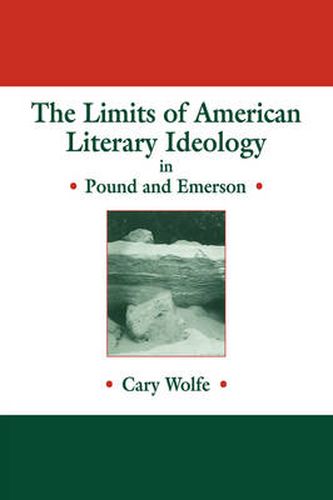Readings Newsletter
Become a Readings Member to make your shopping experience even easier.
Sign in or sign up for free!
You’re not far away from qualifying for FREE standard shipping within Australia
You’ve qualified for FREE standard shipping within Australia
The cart is loading…






In The Limits of American Literary Ideology in Pound and Emerson, Cary Wolfe analyses the dynamics and consequences of radical individualism and the sort of cultural critique it generates in Ralph Waldo Emerson and Ezra Pound. The main purpose of the book is to demonstrate that any form of individualism which is modelled on the logic and structure of private property will always reproduce the very contradictions and alienations which it set out to criticise and to remedy. Part of what makes this study unique and important is that it uses the ideology of individualism, still so powerful and seductive in contemporary America, to build a bridge between the two major figures from literary periods - Modernism and American Romanticism - which are often seen in stark opposition. In doing so, this study extends the critical paradigms and techniques of one of the most exciting new fields of cultural criticism (the so-called ‘New Americanist’ criticism) to cover a period (Modernism) and a type of writing (poetry) which it has largely ignored.
$9.00 standard shipping within Australia
FREE standard shipping within Australia for orders over $100.00
Express & International shipping calculated at checkout
In The Limits of American Literary Ideology in Pound and Emerson, Cary Wolfe analyses the dynamics and consequences of radical individualism and the sort of cultural critique it generates in Ralph Waldo Emerson and Ezra Pound. The main purpose of the book is to demonstrate that any form of individualism which is modelled on the logic and structure of private property will always reproduce the very contradictions and alienations which it set out to criticise and to remedy. Part of what makes this study unique and important is that it uses the ideology of individualism, still so powerful and seductive in contemporary America, to build a bridge between the two major figures from literary periods - Modernism and American Romanticism - which are often seen in stark opposition. In doing so, this study extends the critical paradigms and techniques of one of the most exciting new fields of cultural criticism (the so-called ‘New Americanist’ criticism) to cover a period (Modernism) and a type of writing (poetry) which it has largely ignored.